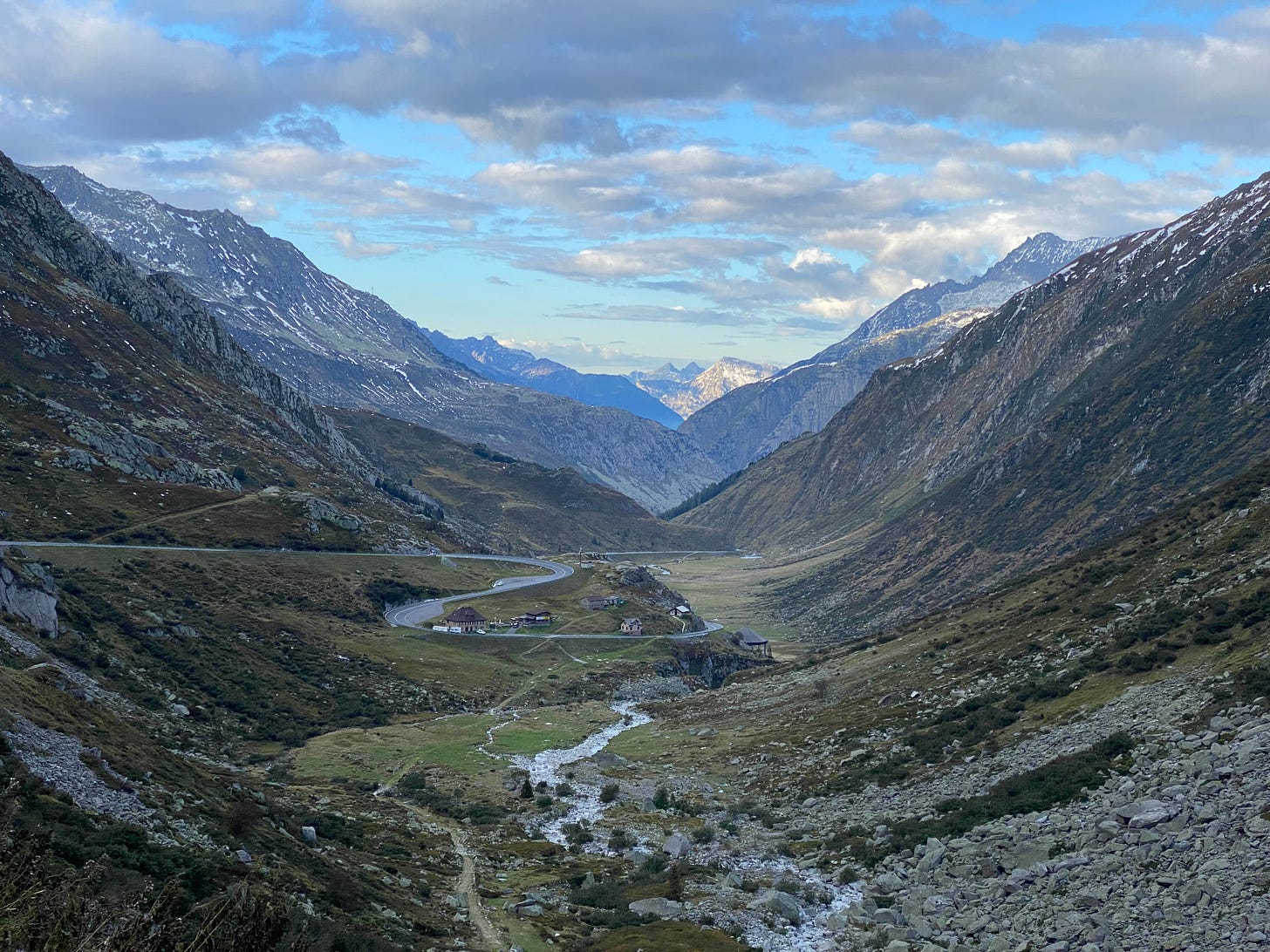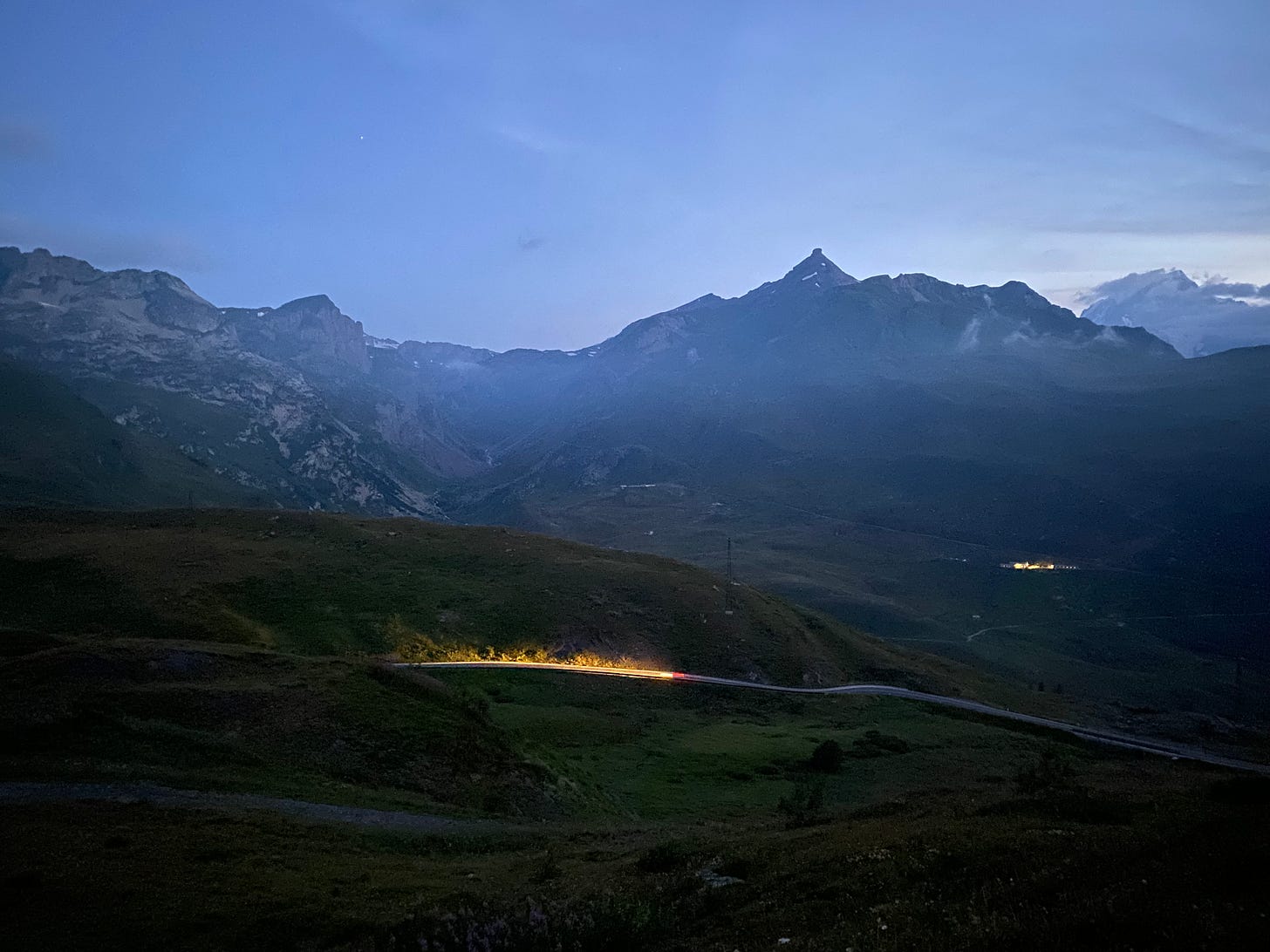About Fear: On the mountain pass [France]
Crossing the border from France to Italy in Bourg-Saint-Maurice, you have two choices. Option 1 is the tunnel. The tunnel is fast and boring. For this experience, you pay 50 euros. And often you wait to enter.
Option 2 is a bit scary: the mountain pass Col du Petit-Saint-Bernard. No waiting. Instead, your car needs to climb two thousand meters. It takes 2 hours of breathtaking serpentines. It is a gateway to a different world. You touch the heaven, then come back to earth. You pay nothing. But not many people take this road. At this altitude, snow in the summer is not uncommon. Ice on the serpentines can be deadly. And most people heading to Italy have summer tires.
I choose option 2. As my van continues climbing up, down in the valley I can precisely see the long line of cars waiting for the tunnel. God bless the tunnel - my road is free of cars, empty and quiet.
The landscape changes at every turn. The roar from the distant highway is not even audible. It becomes cold and silent. I am now surrounded by trees, rocks and clouds.
Then it changes again. Trees disappear and give space to rugged alpine landscape. The evening comes. I arrive at the pass. There’s rocks, two small lakes, a mountain stream, and patches of snow. There’s the immensity and majesty of the mountain. I spontaneously decide to stop for the night. I am alone, except a few other campervans parked far away. I listen to the wind and water.
Something strange happens. I am in the point of my journey which I feared the most. And the fear disappeared. The mind stands still.
***
One reason for travel, especially travel alone, is to confront the fear.
The fear has so many dimensions. There is fear against getting out of our comfort zone: confronting the people, or the powers of nature. Getting harassed, attacked, robbed or scammed. Being visible, exposed or spoken of. Being alone, lonely and helpless. And so on.
Preparation for travel includes confronting these fears.
Then comes liberation: the reality usually turns less scary, and more fascinating than what you had imagined.
People who never camped are afraid of wild animals. People who spent their life outdoors are not. Animals rarely harm people.
I met a Dutch campervan owner afraid of being robbed in France. The French gangsters allegedly put you asleep with gas. I asked French vanlifers if they heard of it. They said: yes, this happens a lot … in Spain!
…
As the night falls, the mind stops wandering and finally starts still. What will tomorrow bring? I realize the fears are gone. The immensity of the mountain has done its work. In this place between heaven and earth, I observe the last, lonely car climbing up the road. I hear no engine, only the long flares illuminating the mountain. What a spectacle.
This is the meaning of travel.
Good night.






This rather reminds me of people from the US traveling in Mexico. While the resort cities there are bustling with folks from the US, the overwhelming majority of Mexico is not. I often travel to out of the way places in that country, and when I tell people at home about it they often seem shocked that I have lived to tell the tale.
Enjoyed this. Good points raised. A lot of fears are unfounded. Often when I'm travelling to countries that are not on the tourist map, people implore me not to go. Based on no concrete reasoning, just fear of an unknown destination that hasn't been featured in the travel mags!